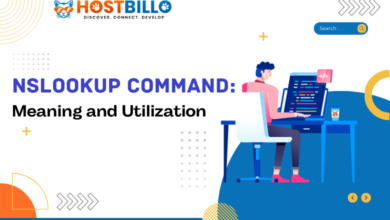What Can AI Do to Help Enterprises Manage and Operate Data Centers More Efficiently?

Introduction
In the ever-evolving landscape of technology, data centers stand as the backbone of modern enterprises, facilitating the storage, processing, and management of vast amounts of data. As the scale and complexity of data centers continue to grow, enterprises are seeking innovative solutions to enhance efficiency and optimize operations. Artificial Intelligence (AI) comes out as a transformative force, offering a myriad of capabilities to revolutionize the way data centers are managed and operated.
AI Improves Data Center Efficiency

AI’s proficiency in processing vast datasets is not only about speed but also about uncovering nuanced correlations and insights that may elude human observation. By continuously learning from patterns and historical data, AI systems become adept at foreseeing potential challenges and opportunities within a data center environment. This predictive capability extends beyond mere maintenance concerns, allowing for strategic planning and proactive decision-making.
Moreover, AI’s impact on data center efficiency goes beyond operational aspects. The technology plays a pivotal role in optimizing overall performance metrics. Through real-time analysis and adaptation, AI ensures that each component of the data center operates at peak efficiency, contributing to a streamlined and high-performance computing environment. This level of sophistication positions AI as a transformative force, reshaping the landscape of data center management and propelling enterprises toward a more efficient and resilient future.
What AI Can Do for Data Center Efficiency

Predictive Maintenance
AI-driven predictive maintenance excels not only in foreseeing potential equipment failures but also in refining its predictions through continuous learning. By analyzing historical data and real-time sensor detail, AI models gain insights into evolving patterns, allowing for increasingly accurate predictions. This adaptive approach enhances the strategic scheduling of maintenance tasks, prolonging equipment lifespan, & minimizing downtime. Predictive maintenance, therefore, evolves into a proactive and finely tuned process, optimizing the balance between operational continuity and equipment longevity.
Dynamic Resource Allocation
The implementation of AI in dynamic resource allocation transcends basic responsiveness to fluctuating workloads. Machine learning algorithms continuously refine their understanding of workload patterns, ensuring a more nuanced and strategic approach to resource allocation. AI not only adapts in real-time but also anticipates changes, optimizing energy consumption and maximizing overall efficiency. This predictive capability transforms data centers into agile environments, capable of seamlessly adjusting to evolving demands while maintaining an optimal operational state.
Anomaly Detection
AI’s role in anomaly detection extends beyond mere identification; it evolves into a sophisticated guardian of data center security and operational reliability. By continuously monitoring system parameters, AI not only recognizes abnormal patterns or behaviors but also discerns subtle deviations that might signal potential issues. The prompt identification of security threats or irregularities allows for swift intervention, safeguarding the integrity of the data center. This upbeat methodology intensifies security and contributes to the comprehensive reliability and resilience of data center operations.
Energy Efficiency
In the pursuit of energy efficiency, AI-driven optimization becomes a multifaceted strategy. Beyond the intelligent management of cooling systems, lighting, and infrastructure components, AI continuously refines its understanding of energy consumption patterns. This adaptive capability allows for the implementation of increasingly sophisticated strategies to reduce energy consumption further. AI not only responds to current environmental conditions but also anticipates future trends, enabling data centers to achieve substantial cost savings and a more sustainable operational footprint. The integration of AI, therefore, becomes a cornerstone in the quest for comprehensive and forward-thinking energy efficiency in data center management.
AI vs. People

In the intricate domain of data center management, the synergy between AI & human expertise emerges as the key to success. While AI excels in data analysis, pattern recognition, and automating routine tasks, human professionals bring a level of creativity and intuition that is invaluable in complex decision-making scenarios. Human operators possess the ability to understand the broader organizational context, consider ethical implications, and strategize for long-term goals.
To illustrate this collaboration, consider the following table highlighting the distinctive strengths of AI and human professionals in data center management:
| Aspect | AI | Human Professionals |
| Data Analysis | Rapid processing and pattern recognition | Intuitive understanding and contextual analysis |
| Decision-making | Algorithmic efficiency | Strategic thinking and ethical considerations |
| Creativity | Limited to learned patterns | Innovation, adaptability, and creative problem-solving |
| Contextual Awareness | Focused on data-driven insights | Holistic understanding of organizational goals |
| Flexibility | Adaptable to repetitive tasks | Adaptable to unforeseen and dynamic scenarios |
The table emphasizes the importance of a collaborative approach, where AI augments human capabilities, enhancing efficiency and decision-making. By capitalizing on the strengths of both AI and human professionals, enterprises can achieve a harmonious and effective data center management strategy that maximizes the potential of advanced technologies while maintaining a human touch.
How AI Can Help Enterprises Manage and Operate Data Centers More Effectively

Data Integration
In the realm of data center management, successful AI implementation begins with robust data integration. This involves seamlessly incorporating AI-compatible sensors and monitoring systems across various data center components. These sensors collect a vast array of real-time data, including temperature, humidity, power consumption, and equipment performance. The integration of these diverse data points provides a comprehensive view of the data center’s operational landscape. This holistic approach enables AI systems to make informed decisions by analyzing the interdependencies between different parameters, ensuring a more accurate and nuanced understanding of the data center environment.
Model Development
The heart of AI’s impact lies in the development of tailored models that cater to the unique needs of a specific data center. This process involves in-depth consideration of workload patterns, equipment specifications, and energy consumption trends. By customizing AI models, enterprises can address the distinct challenges and requirements of their data center infrastructure. The models are crafted to not only optimize existing operations but also to anticipate future demands. Through ongoing refinement and adaptation, these AI models become increasingly adept at making precise predictions and recommendations, contributing to a proactive and efficient data center ecosystem.
Training and Optimization
The journey towards AI-driven efficiency in data center management involves continuous training and optimization. AI models are initially trained using historical data, allowing them to recognize patterns and correlations within the data. However, the dynamic nature of data center environments requires ongoing optimization. As the data center evolves, AI systems must adapt to new variables, emerging patterns, and changing workloads. Regular optimization ensures that the AI system remains relevant, accurate, and aligned with the evolving needs of the data center. This iterative process empowers the AI to provide real-time insights and recommendations, contributing to the overall agility and responsiveness of data center operations.
Collaboration and Training
The successful integration of AI into data center management goes beyond technological implementation; it involves fostering collaboration between AI systems and human operators. This collaboration is fortified through training initiatives aimed at equipping data center staff with the skills to understand and interpret AI outputs effectively. Training programs emphasize the symbiotic relationship between AI technologies and human expertise. By nurturing a collaborative culture, enterprises enable their teams to work seamlessly with AI, leveraging its capabilities to achieve common goals. This collaborative approach ensures that AI becomes an integral part of the decision-making process, enhancing operational efficiency and bridging the gap between advanced technology and human insight in data center management.
Also Read: Cloud vs Traditional Data Center: What’s the Difference?
Final Thoughts
The integration of AI into data center management holds immense promise for enterprises seeking to enhance efficiency, reduce operational costs, and stay ahead in the digital era. While AI brings unparalleled capabilities in predictive analytics, resource optimization, and security enhancement, it is crucial to strike a balance between AI and human expertise. By leveraging the strengths of both, enterprises can create a resilient and highly efficient data center infrastructure that adapts to the evolving demands of the technological landscape.




